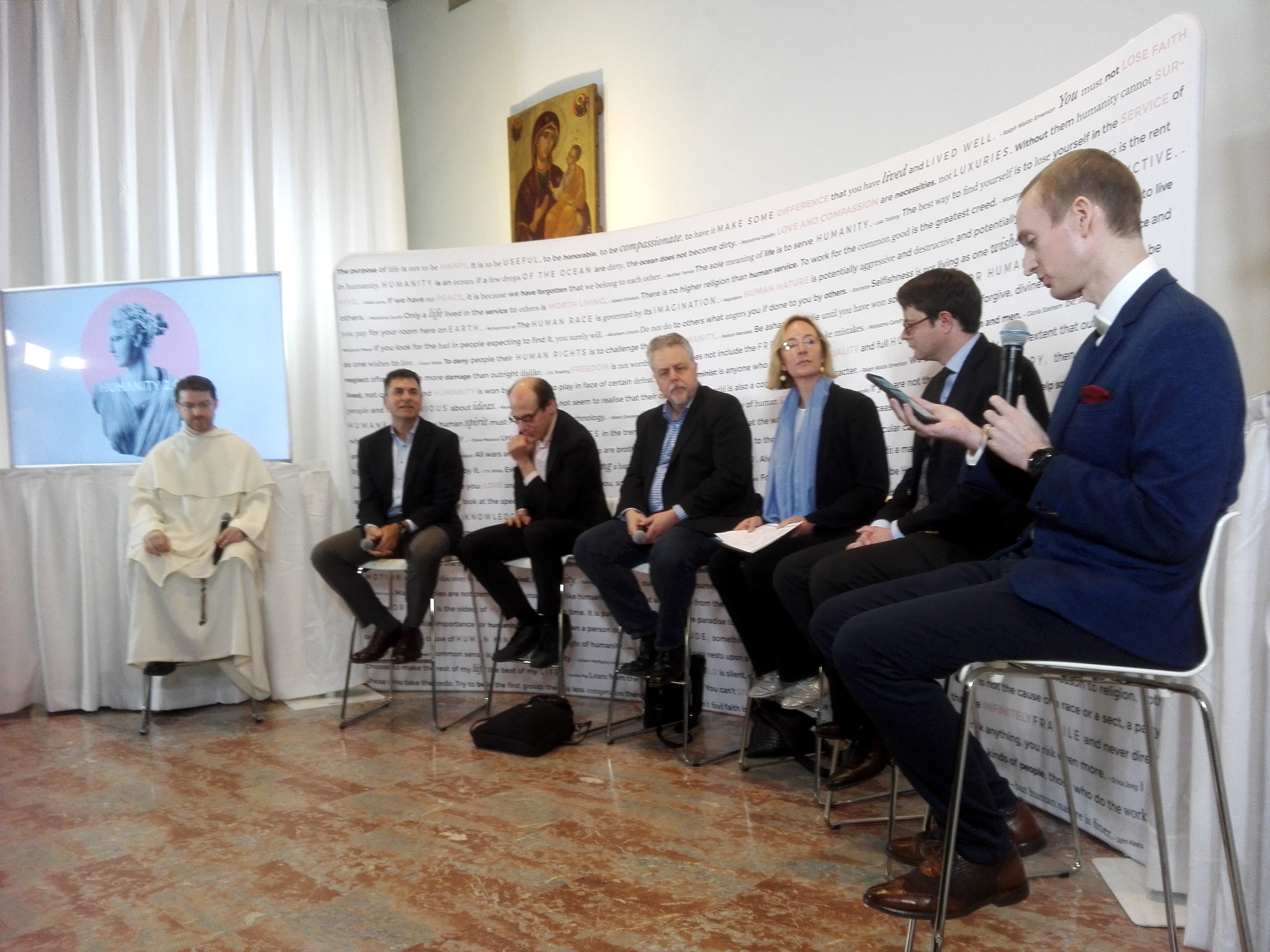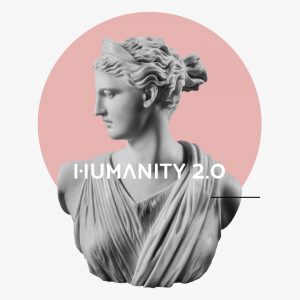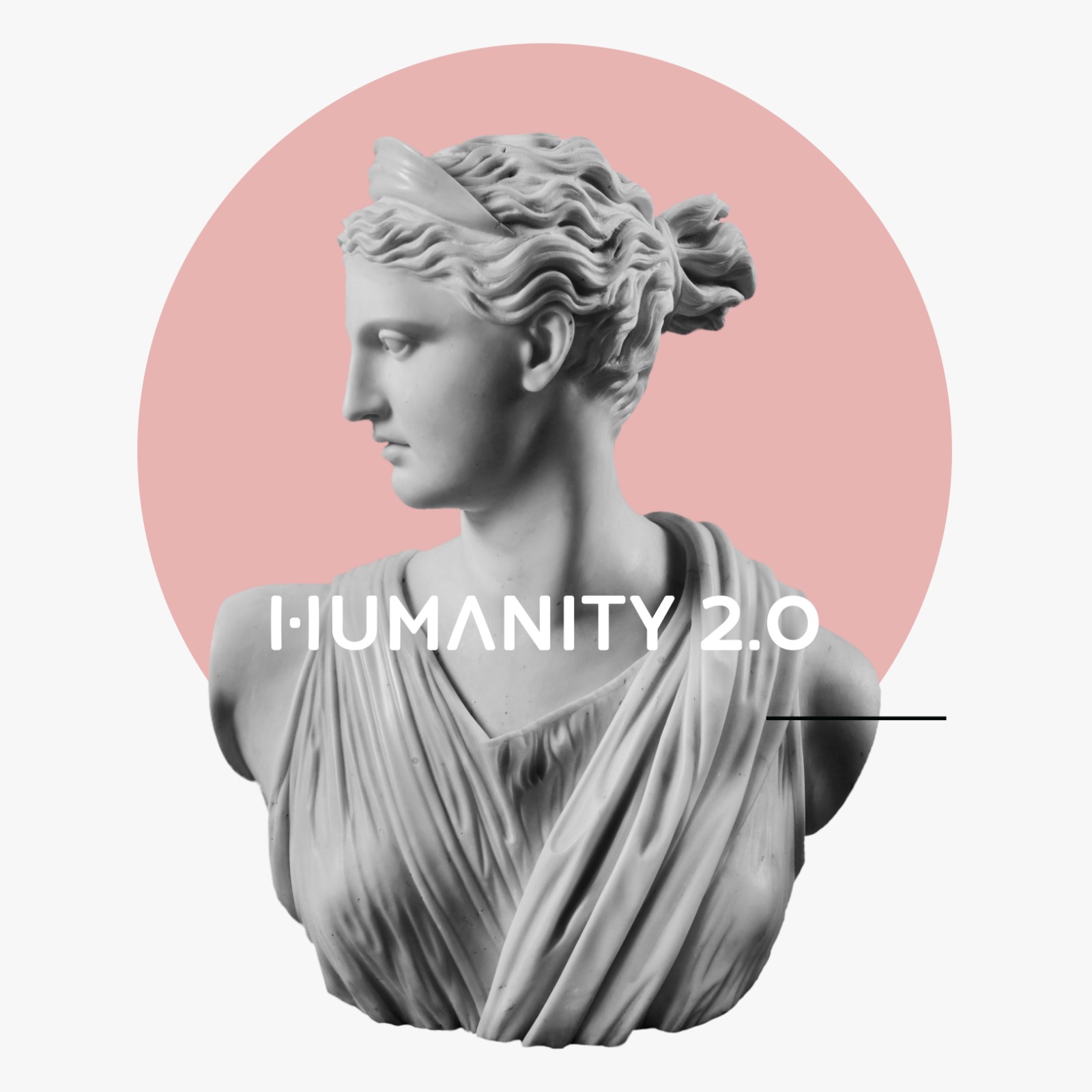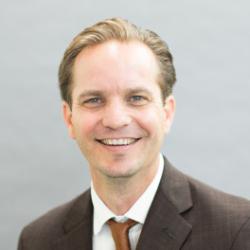
Matthew Harvey Sanders, a former seminarian turned successful technology and communications entrepreneur, has sought to fuse deep theological and moral convictions with his natural talent and contagious pioneering spirit. His brain child: Humanity 2.0, a self-described “human progress accelerator” showcased last May 9 at a forum held inside Vatican walls.
According to Sanders’s web site, Humanity 2.0 is built on Thomas Aquinas’s precepts for human salvation, namely, that we ought to believe, desire and actually commit to what our Christian conscience commands us to do. The project’s specific mission is to “identify impediments to human progress and work collaboratively across [multiple] sectors to remove them by sourcing and scaling bold and innovative solutions.”
Sanders began his ambitious project over one year ago, but last Friday’s meeting was its international launch. Humanity 2.0 attracted the creativity and moral conscience of business executives, entrepreneurs and academics in order to give them space to pitch solutions to global social health, economic, and moral concerns. Listening and critiquing them were religious leaders, public sector officials, journalists and think tank representatives.

No doubt Sanders worked hard to realize a coup of business, academic, ecclesial and public sector leadership all under one Vatican roof. It was a feat not easily achieved while at the same time balancing harmonious agreement and vigorous disagreement from among the over 150 creative and concerned minds. Nevertheless, Sanders remained positive and expressed his confidence that human beings can unite under the umbrella of effective care and solidarity when left free to do what they “should” and “can” creatively achieve.
“If history has taught us anything, it’s that humans rarely rise to the occasion unless they’re inspired by what ‘should be’ and this is why Humanity 2.0 is committed to articulating a common vision”, Sanders said. “The crux of our strategy is to focus on what we ‘can’ do together, not what we ‘can’t’.”
The entire morning of the forum was dedicated to the “Humanity 2.0 Lab”, a vision for research centers to be set up in cities with international commercial, cultural and moral influence, including Rome where the pope is considered to have the greatest ‘soft power’. The Humanity 2.0 Lab would gather and share data on scientific, economic and health-related issues in order to coalesce the brightest minds to cooperate on providing optimal solutions to shared human crises.
The CEO of the Humanity 2.0 Lab, Morad Fareed, presented his plan for centers focusing on maternal health impact. Fareed is the founder Square Roots, “a discovery company” that focuses on improving pregnancy health “by connecting the dots of existing care models to human needs.” He also co-founded Delos, a global wellness enterprise guided by the mission to serve as the world’s leading catalyst for enhanced health and well-being in the environments where we live, work, sleep and play.
His maternal health labs would work to amalgamate and analyze data and then offer tool-kits of preventative medicine and self-care for carrying babies to full term. Fareed said that optimizing pregnancy is critical to ensuring human flourishing and that if we don’t act, we are limiting the potential of the next generation.
The forum’s afternoon mainly focused on the moral vision and ethical debate surrounding human flourishing and decision making in business. Fr. Ezra Sullivan, OP, a Dominican theologian at the Pontifical University of St. Thomas Aquinas, evaluated the various levels of human happiness, while clearly stating that without some basic level of health and well-being, as defined by Maslow’s hierarchy of needs, flourishing is simply not possible.
Sullivan also demonstrated how there may arise confusing and conflicting “metrics of happiness”, as when European Nordic countries are said to be the “most happy” but also have the “highest suicide rates,” a correlation many do not naturally expect. Hence, even while material needs are being met by a supposedly well-organized societies, they are not the only measure of human fulfillment. Most fundamentally, said Sullivan, the needs of our intellectual and spiritual dimensions must also be cared for and respected by the global community.
After Sullivan’s speech, a School of Business Ethics supported by the Pontifical Lateran University as well as professors from Harvard and Wharton business schools was proposed by Fr. Philip Larrey. Larry is the Lateran’s professor of logic, author of Connected World, and chairman of Humanity 2.0.
Larrey said while we live in a corporate world guided by good governance, tightly enforced legal compliance and superior codes of conduct, we too often breach solid moral infrastructure in place at successful businesses. The problem is not just that the human species is fallen to original sin and thus prone to evil.
“Most business persons I meet are actually very impressive moral persons” yet need better judgement and moral mentoring to sort through dilemmas brought on by the “naturally complex transactions” they must discern in market exchange economies, Larrey said.
Larrey said his vision for a School of Business in Rome would provide diplomas and certificates via intensive seminars with executives and entrepreneurs to “raise their level of critical thinking” without producing cookie cutter or Vatican imprimatur solutions to business ethics and by welcoming much more international case studies in collaboration with the world’s best business schools.
The closing session was dedicated to emerging technology for the common good. Sanders reminded the audience that Humanity “2.0” implies that the human species has moved beyond its primitive “1.0” version, when human society used to be made of rival and ultimately disconnected tribal communities.
“Today’s “2.0” humanity,” Sanders said, is made of connected communities, essentially “one tribe which should be able to easily communicate and collaborate with the aid of modern technologies and act in coordinated, creative solidarity” for the achievement of goods necessary for human flourishing.
This is exactly what Pope Francis has called for, as noted in an excellent Crux article on the event, when he urged faithful last November 2018 to strive for “free and far-sighted entrepreneurship… and a solidarity approach” for achieving just solutions to humanity’s greatest present-day and future challenges.
(Photo and featured image credit: Humanity 2.0 logo used with permission from Matthew Harvey Sanders. Top photo courtesy of Michael Severance).

